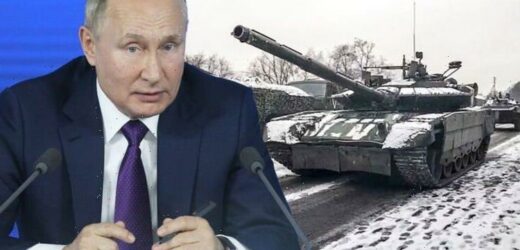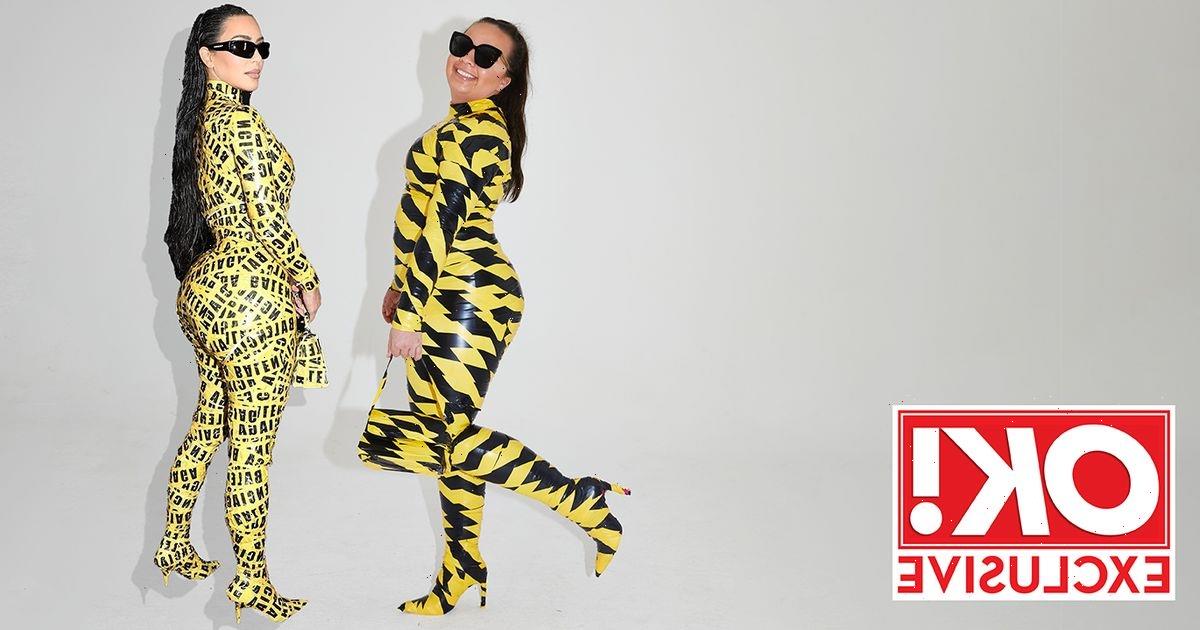CNN reporter says the war siren is part of Ukraine's 'daily soundtrack'
We use your sign-up to provide content in ways you’ve consented to and to improve our understanding of you. This may include adverts from us and 3rd parties based on our understanding. You can unsubscribe at any time. More info
According to meteorologists, the combination of the Arctic air presently moving across Russia and Ukraine with an easterly wind will see temperatures around Kyiv and Kharkiv drop as low as -10C (14F) overnight — well below average for this time of year.
When windchill is factored in, however, such temperatures could end up feeling as low as -20C (-4F), presenting challenges for both invading and defending forces.
However, the repercussions are expected to be worse for the Russian troops presently stalled in a 40-mile-long convoy of vehicles outside of Kyiv as a result of a combination of logistics and supply issues as well as Ukrainian resistance.
Major Kevin Price, formerly of the British Army, told the Times: “Minus 20C will degrade the Russian force, there is no question.
“It will improve cross-country mobility because there will be less mud but the Russians are not ready for Arctic conditions.
“Imagine being sat in a 40-tonne iron freezer all night.”
The Russian convoy outside of Kyiv has stalled in no small part because of supply issues to these frontline forces — meaning that many soldiers may find themselves without enough fuel to keep their engines running while stationary to stave off the growing cold.
Alongside reducing morale, low temperatures may also decrease vehicle performance, Major Price noted, adding to the engineering support issues that the invading forces have reportedly already been facing.


According to NATO officials, recent days have seen Russia making very little progress in its war — and military analysts are not predicting any fresh gains for them in the coming days.
The freezing conditions, however, are also expected to negatively impact Ukrainian forces as well as those refugees attempting to flee the warfare.
Land warfare expert Brigadier Ben Barry of the International Institute for Strategic Studies in London told the Times that the weather “will slow things down for both sides”.
He added: “The proportion of troops that start suffering cold injuries like frostbite will go up.”


Frostbite — cold-temperature damage to the skin and its underlying tissues — can manifest at much lower temperatures than are expected to descend upon Ukraine this week.
According to the NHS, only conditions of -0.55C (31F) are required with inadequate clothing or protection for symptoms to begin, this is 10 degrees less than what may be felt around Kyiv.
The injuries occur as a result of the body diverting blood flow away from extremities like hands, feet, ears, the nose and lips in favour of vital organs.
This can allow fluids in these areas to freeze into crystals, causing cell and tissue damage, while the low blood flow can starve the extremities of oxygen and risk tissue death.
Frostbite in extreme cold conditions is best prevented by staying in the warm, and wrapping up in both weatherproof and thermally insulating layers when this is not possible.
According to Major Price, the Russian forces are unlikely to have foreseen such unseasonably extreme weather in Ukraine, and are therefore probably unprepared.
DON’T MISS:
UK to play ‘key role’ in saving EU from energy crisis [ANALYSIS]
Ukraine war sparks UK food shortage fears for millions over export ban [REPORT]
China plans THREE new gas pipelines with Russia as EU, UK and US BAN [INSIGHT]

According to AccuWeather, the cold front bearing down on Ukraine is expected to bring its most severe conditions between Thursday and Saturday this week.
Baltic Security Foundation senior defence expert Glen Grant told Newsweek: “A metal tank is just a fridge at night if you are not running the engine.
“The cold weather is going to demoralise troops even further and will create even more refrigerators.”
The analyst added that he expects many Russian soldiers trapped in freezing vehicles to abandon them — and perhaps even the fight altogether.
He said: “You just can’t sit around and wait because if you are in the vehicle you are waiting to be killed. They are not stupid.”
A spokesperson for the Met Office added: “Colder than average conditions will develop widely across Eastern Europe before extending further south through the Aegean.
“Markedly colder conditions compared to typical in early March will arrive from the east to Ukraine from Tuesday.
“Temperatures could be as much as 5-8C below average.”
“This will result in sub-zero temperatures for much of the day.”
Source: Read Full Article

